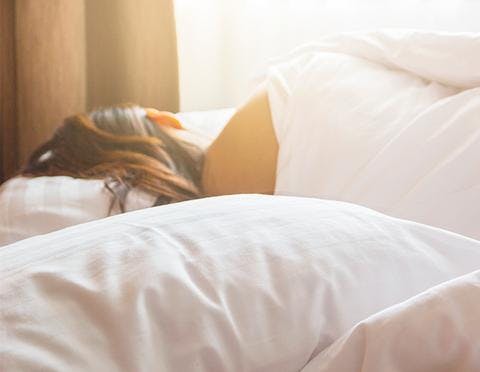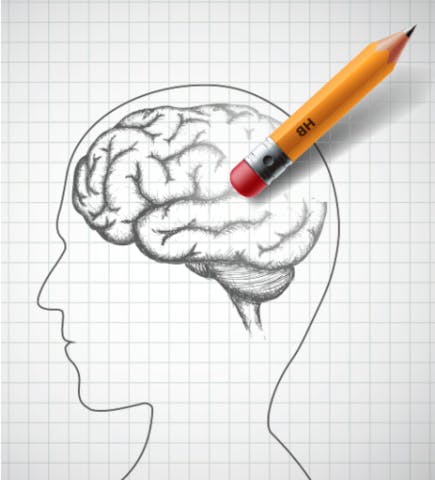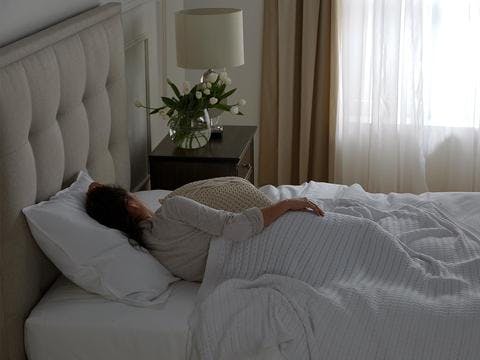DOES SLEEP HELP YOUR MEMORY?

Sleep rejuvenates the mind - have no doubt. Lack of sleep is no good for anyone. We all know this from experience. When you haven’t slept well, your brain seems foggy. Recalling important information may take more time...you seem to work slower. But could the effects of not sleeping extend to your ability to learn and remember things? Is it a proven fact that getting more sleep helps you remember more?
Well, we’re here to help answer this question and confirm the possibility of a direct correlation between getting more sleep and an improvement in memory and retention of information. There’s a lot of interesting reading out there - let us save you some time by bringing you a compilation of some of the studies and findings we’ve come across.

Evidence suggests (in the opinion of many researchers) that different sleep stages (and the specific characteristics of brain waves during those stages) are involved in the consolidation of various types of memories. Furthermore, that being sleep deprived reduces one’s ability to learn new information.
This is all great news for those of us who enjoy our sleep and make it a ‘decent’ nights sleep a priority, right?! However for those who have a more ‘complicated’ relationship with their bed, perhaps these next findings may offer an another opportunity to improve your learning
Take a break, have a nap, and remember stuff! Simple.
You see, it’s not only deep restorative ‘night-time’ sleep that can have a positive effect on memory (and mental performance). Studies claim that taking a daytime nap after learning new information can help the brain process and retain that information.
In one particular study on napping and memory consolidation, groups were asked to memorise sets of illustrated cards, take a 40 min break and then learn another set. One group was asked to nap during the interval while the other stayed awake. Sure enough, the group that napped did better! On average they retained 80% of the information as compared to 60% for the group that didn’t take a nap.
Further tests have shown that when these naps were long enough to enter REM sleep, the deep phase of sleep known as rapid eye movement, results improved again - 40% better* in fact than those that didn’t enter REM sleep or that didn’t nap at all.

In other studies it has also been suggested that memories associated with rewards are preferentially selected over those without. 'During sleep, that information is favourably consolidated over information associated with a low reward, and is transferred to areas of the brain associated with long-term memory.’* This, notes Dr Igloi from the University of Geneva, ‘makes adaptive sense’....our memory could be working to prioritise information that is important for our ‘success and survival’.
Why, we hear you ask, would napping be influential in helping us remember new information? Well, research suggests that when memory is first recorded in the brain (in the hippocampus if we want to get specific about it) it is still ‘fragile’ i.e. easily forgotten. But when you have a nap, it would seem that memories are pushed into ‘more permanent storage’ (into the neocotex), preventing them from being ‘overwritten’.
While there is still much debate (including around the questions of which stages of sleep memory consolidation occurs), the overall evidence does seem to suggest that adequate sleep every day is important for learning and memory and that napping after learning new information can help the brain process and retain that info.

If anything, all this evidence just gives us more reason to love our beds and sleep! If we stop thinking about sleep as being ‘downtime’ or ‘unproductive’, and start to think of it as an opportunity for our brains to process and operate optimally, then we build a positive association….And that’s exactly the kind of relationship we want with sleep!

‘Not only is my short term memory horrible, but so is my short term memory’ Minion quote
References
- http://www.dailymail.co.uk/health/article-3276446/How-daytime-nap-good-90-minutes-shut-eyelearning-helps-remember-new-facts-skills.html
- http://gawker.com/5741490/want-to-memorize-something-take-a-nap http://www.health.harvard.edu/blog/sleep-helps-learning-memory-201202154265
- http://healthysleep.med.harvard.edu/healthy/matters/benefits-of-sleep/learning-memory
- http://www.dailymail.co.uk/health/article-3276446/How-daytime-nap-good-90-minutes-shut-eye-learning-helps-remember-new-facts-skills.html#ixzz4hi6rSEBO
PROFESSIONAL HELP FOR INSOMNIA
If you try the tips above and you’re still having difficulty going to sleep or staying asleep we recommend you seek professional help. Contact your doctor or a sleep disorder clinic to discuss your problems as soon as you can. If you’d like to discuss your mattress, to make sure your current mattress is the best one for your personal needs, contact your local Snooze store.